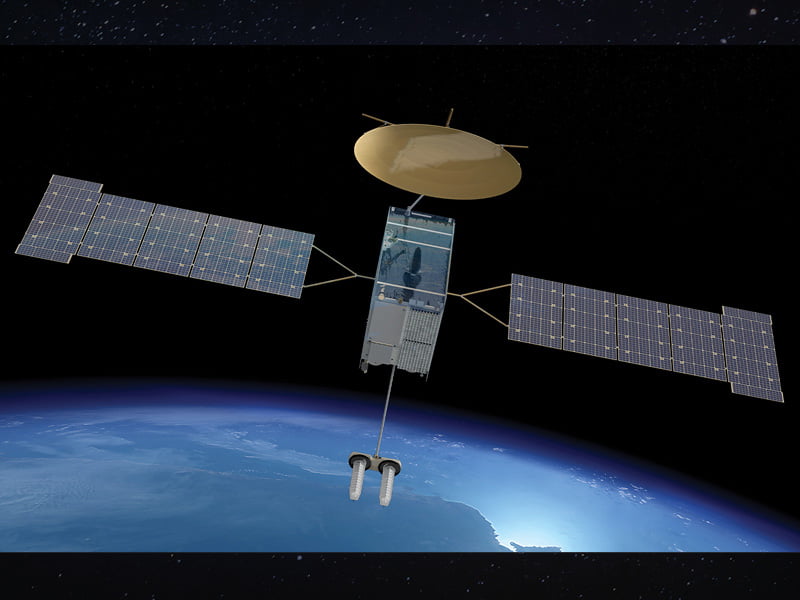A multi-billion dollar contract with Lockheed Martin for Australia’s first “sovereign-controlled” military satellite communication constellation has been cancelled by the federal government.
Defence announced the decision on Monday, ending a contract estimated to be worth up to $7 billion over its life before it was signed.
In a statement, the department said the cancelled the project — known in military circles as JP9102 — because it no longer meets its strategic priorities.
Defence’s confirmation follows reports that the initial budget earmarked for the program was set to blow out a year and a half after Lockheed Martin was selected as the preferred prime contractor.

JP9102 would have delivered between three to five geostationary satellites, supported by multiple ground stations, an integrated satellite communications management system, and two new satellite communications operations centres.
The procurement process initially began in 2021, with Lockheed Martin beating Optus, Airbus, Boeing and Northrop Grumman to the work package in April 2023.
Lockheed Martin’s JP9102 consortium included local businesses like Inovor Technologies, EM Solutions, AV-Comm, Linfox, Shoal Group, Ronson Gears, Calytrix Technologies, Conscia, Clearbox Systems, DXC and Blacktree Technology.
A spokesperson for Lockheed Martin Australia did not answer specific questions when contacted by InnovationAus.com, instead reiterating that it is proud to partner with Defence on “many ongoing programs”.
“We are committed to preserving our sovereign workforce with impacted staff being redeployed across other existing and emerging programs where possible,” the spokesperson said.
The Space Industry Association of Australia chairman Jeremy Hallett responded to the cancellation of JP9102 with “profound disappointment” given a large number of its members “have been involved with the program for many years”.
Mr Hallett said “the first industry briefings for this project were held in 2017, so some companies are coming up to eight years of involvement”.
“I am sure some companies will seriously consider the business case for dealing with Defence as a customer in the future, which I worry will mean our warfighters will miss out on homegrown innovations that can make a difference on the battlefield,” he said.
Mr Hallett also enumerated ongoing uncertainty around several other Defence space programs, including “a change in direction for Space Domain Awareness under JP9360 after industry being led along for many years”.
“We have the media-reported cancellation of the Resilient Multi-Mission STaR Shot program by DSTG, we have heard nothing public on Assured Positioning, Navigation and Timing under JP9380 even though that tender closed over a year ago, and now this news on JP9102 – not to mention cuts to civil space programs,” he said.
The end of JP9102 comes 18 months after cuts to the National Space Mission for Earth Observation, a 15 year, $1.2 billion program. Roughly $450 million was later spent to secure access to the US-led Landsat earth observation satellite program.
JP9102 was meant to replace the communications services delivered through Optus’ C1 communications satellite, which Defence has had access to since 2003, and satellite services it has been receiving from Inmarsat since 2017.
In 2022, Defence awarded Optus $405.5 million to extend its access to the C1 satellite until September 2034. Under a separate $53 million contract with Defence, access to the C1 satellite was initially due run to the end of 2027.
Inmarsat meanwhile is contracted to provide satellite communications airtime services and managed hardware to the Australian Defence Force until the end of 2027 for at least $370 million.
Do you know more? Contact James Riley via Email.

